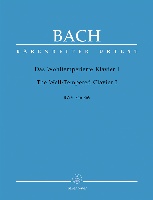-
Aria: "Ich will nur dir zu Ehren leben" from the "Christmas Oratorio" for Woodwind Quartet (principal)
- compositeur Bach, Johann Sebastian
 PARTITION
PARTITION
-
Christmas Oratorio for Woodwind Quartet
- LEONARD, ANDERSON
 PARTITION
PARTITION
-
Aria: Ich will nur dir zu Ehren leben from the Christmas Oratorio for Woodwind Quartet
- MAGATAGAN, MICHAEL
 PARTITION
PARTITION











 Faire un don
Faire un don

 Viola Arrangements
Viola Arrangements

Et quelle belle interprétation. Merci.